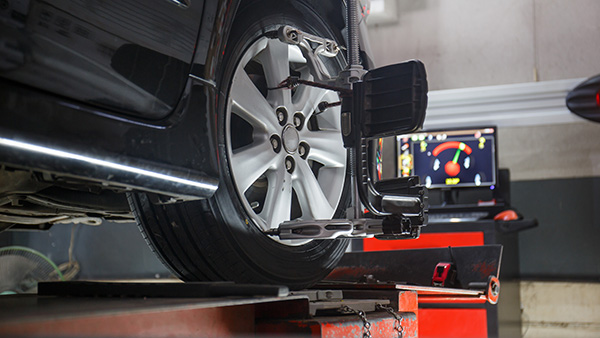
When it comes to car maintenance, wheel alignment often gets overlooked. Yet, it plays a critical role in your vehicle's performance. Think about it—when your wheels are properly aligned, your car handles better, your tires last longer, and you save money on fuel. But what exactly is wheel alignment, and how does it impact your car's performance?
Understanding Wheel Alignment
So, what is wheel alignment? Simply put, it's the adjustment of the angles of the wheels so that they are set to the car manufacturer's specifications. The primary angles involved are camber, toe, and caster. Each of these angles affects how your car handles and how your tires wear over time.
When your wheels are aligned correctly, they point in the right direction, and your car drives smoothly. If they're out of alignment, you'll likely notice issues like uneven tire wear, steering problems, and decreased fuel efficiency.
How Misalignment Affects Your Car
Misalignment can sneak up on you. It might be caused by something as simple as hitting a pothole or bumping into a curb. Over time, even minor misalignments can lead to significant problems. For starters, you might notice that your car pulls to one side or that the steering wheel is off-center even when driving straight. This can make driving more tiring and less safe.
Misaligned wheels increase tire wear, so you'll have to replace your tires more frequently. Uneven tire wear also reduces traction, making it harder to stop quickly in an emergency.
Impact on Fuel Efficiency
Believe it or not, wheel alignment can also affect your car's fuel efficiency. When your wheels aren't aligned, your engine has to work harder to keep the car moving straight. This extra effort consumes more fuel.
Studies show that proper alignment can improve fuel efficiency by up to 10%. That might not seem like much, but over time, it can add up to significant savings at the pump. Plus, with gas prices always fluctuating, every bit of fuel efficiency helps.
Enhancing Handling and Safety
One of the most noticeable benefits of proper wheel alignment is improved handling. When your wheels are aligned, your car responds better to steering inputs. This makes for a safer and more enjoyable driving experience.
It's particularly important if you drive on winding roads or in heavy traffic, where quick, precise handling can make a big difference. In terms of safety, proper alignment ensures that all four tires have maximum contact with the road, providing better grip and stability. This is crucial in preventing accidents, especially in adverse weather conditions.
Saving Money on Repairs
Regular wheel alignment checks can save you money in the long run. How? By preventing damage to other parts of your car. Misaligned wheels can put extra stress on your suspension and steering systems, leading to premature wear and potentially costly repairs.
Addressing alignment issues early can prevent these problems and extend the lifespan of your car's components. It's a simple, cost-effective measure that can save you from expensive repairs down the line.
When to Get Your Wheels Aligned
So, how do you know when your car needs a wheel alignment? There are several telltale signs. If you notice your car pulling to one side, uneven tire wear, or a crooked steering wheel, it's time to get your alignment checked.
It's also a good idea to have your alignment inspected whenever you get new tires or if you've had a significant impact like hitting a pothole. Regular checks as part of your routine maintenance schedule can help catch alignment issues before they become serious problems.
Don't let misaligned wheels affect your driving experience. Schedule a wheel alignment at TC Auto Service today and ensure your car handles the road perfectly.